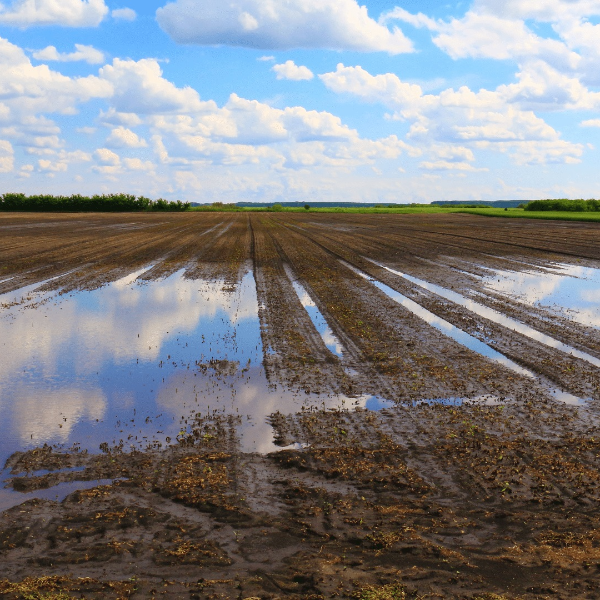Climate change and nutrient leaching and runoff

Climate change and nutrient leaching and runoff
An exploratory literature review has identified the effects of climate change on nutrient leaching and run-off from agricultural soils. Higher temperatures and more erratic precipitation patterns are likely to increase these levels. Without mitigation, this will lead to a deterioration in water quality. However, maintaining a good soil nutrient balance remains a complex task, and predicting the effects of climate change is far from straightforward.
Good soil quality is essential for the water system, and healthy soil can help achieve the objectives of the Water Framework Directive (WFD), for example by reducing surface run-off of nutrients. However, climate change is increasingly creating problems. To prepare for the consequences of climate change and to limit the damage, the Delta Plan for Spatial Adaptation was drawn up. Identifying vulnerabilities in the system is one of the seven objectives; stress tests are used to describe the effects of climate change on the system in terms of quality and quantity and to determine where, when and what problems will occur. Water quality will also be affected; a prototype for water-quality stress tests has been developed to quantify the impact of climate change on water quality. This stress test is based on the Ecological Key Factors (ESF) methodology.
A key aspect of water-quality stress testing is the extent of nutrient leaching and run-off from soils. The effects of the climate on this process are currently unknown due to the absence of a good overview of changes in soil processes related to water and nutrient transport. It is important to gain a better understanding of the effects of climate change on soils, as soil processes are expected to change as a result of climate change, adversely affecting water quality.
This article, published by H2O Waternetwerk, describes the results of an exploratory literature review on the effects of climate change on soil processes and how they affect water quality. It focuses in particular on rural areas, as more than 60% of the Dutch land area is used for agriculture, and artificial fertilisers and manure are used in many of these areas, increasing nutrient concentrations in soil, water and air. This article concentrates on the carbon, nitrogen and phosphate cycles because these nutrients have a significant direct and indirect impact on surface water quality. The ultimate objective is to quantify the impact of climate change on the leaching and run-off of these nutrients.
This article was written by Marleen Ursem, Marloes van der Kamp, Willem Hendriks and Sebastiaan Schep (Witteveen+Bos). You can read the article in full here.